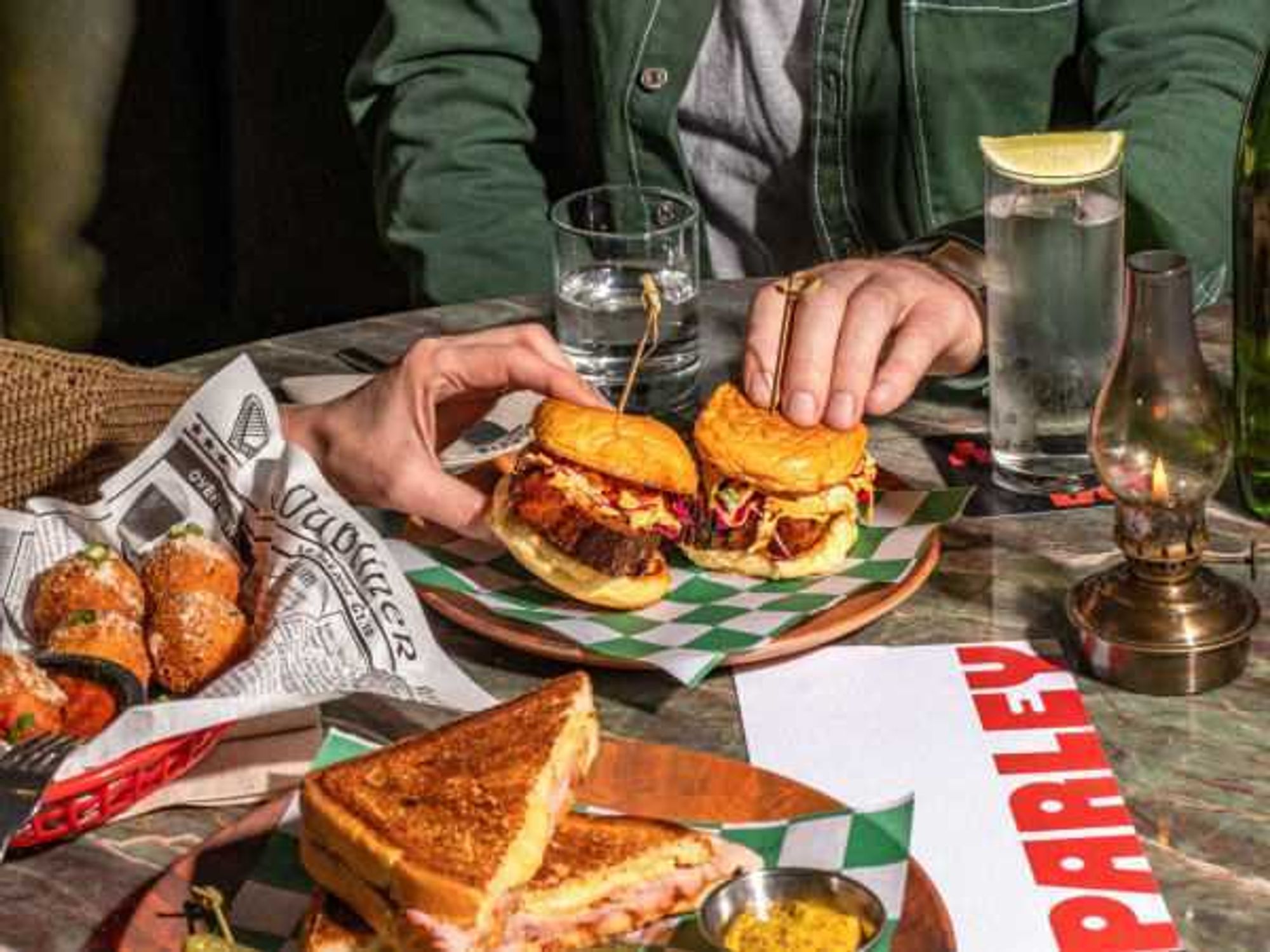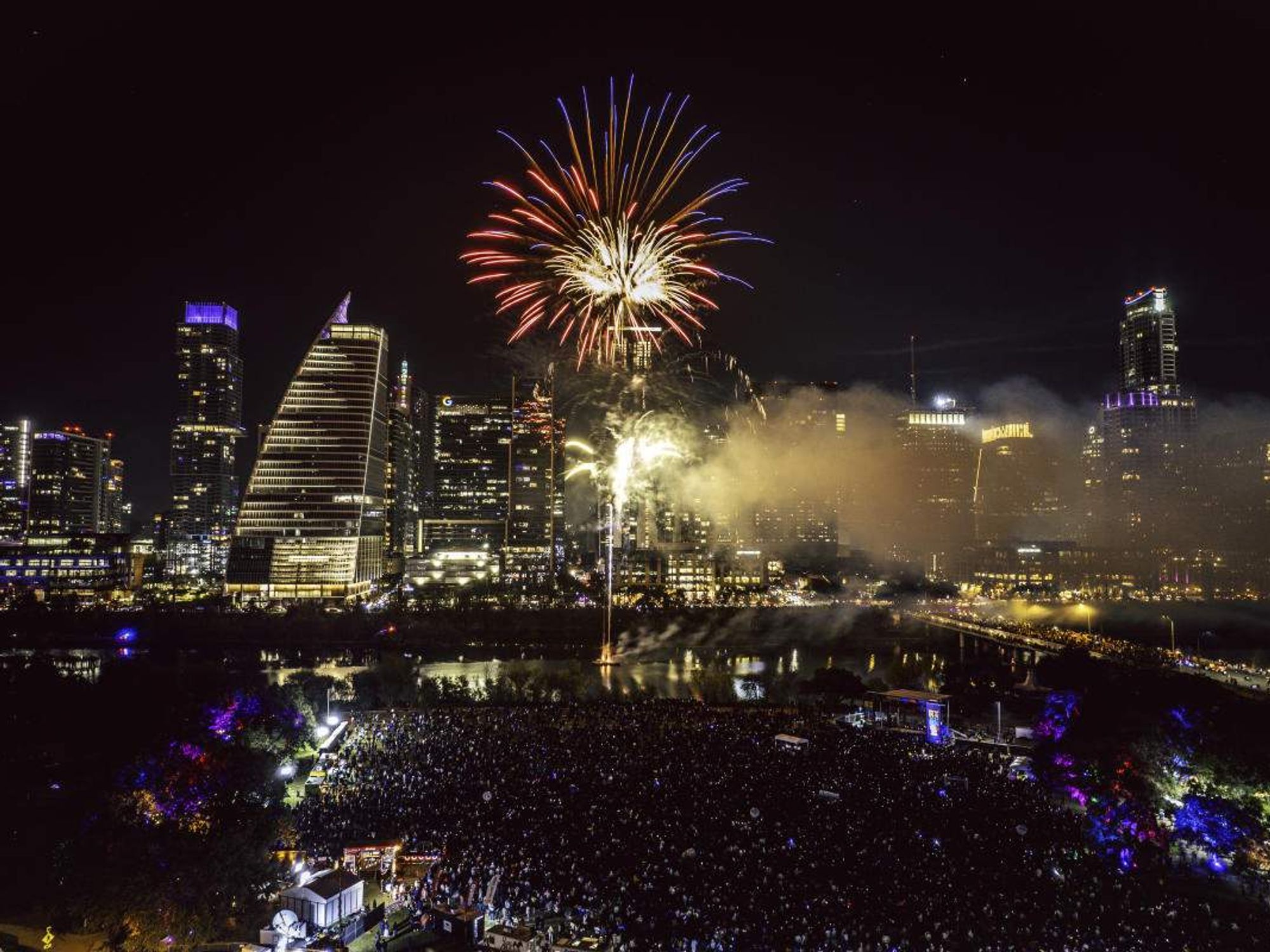presidential politics
From bipartisan to polarizing: One reporter watches Perry repeat the Bushcampaign trail
 On July 18, 2011, in his Capitol office, Perry signs a bill into law in a pressevent that never would have been this crowded had we all not been convinced hewas about to announce, any minute now, that he'd run for presidentPhoto by Charlie L. Harper III
On July 18, 2011, in his Capitol office, Perry signs a bill into law in a pressevent that never would have been this crowded had we all not been convinced hewas about to announce, any minute now, that he'd run for presidentPhoto by Charlie L. Harper III Perry prays in public at the Reliant Stadium in Houston on Aug. 6 during "TheResponse" day of prayer and fasting, which Perry helped organize and promote.Photo by Charlie L. Harper III
Perry prays in public at the Reliant Stadium in Houston on Aug. 6 during "TheResponse" day of prayer and fasting, which Perry helped organize and promote.Photo by Charlie L. Harper III
I saw it coming, but not for the reasons others saw it coming. For me, it was the flashbacks.
By the time he got around to making his formal announcement to run for president, Governor Rick Perry’s intentions had become the worst-kept secret in politics.
The local media knew it long before everyone else. But the man has also surprised us before, so it wasn’t my knowledge of him or the endless lobby chatter that convinced me he was getting in. It was that I’d watched the exact same thing happen 10 years ago, when Texas Governor George W. Bush announced for president.
As a reporter in the Austin press corps since 1997, I’d witnessed W’s journey from Governor’s Mansion to White House with a mix of fascination, ownership, self-righteous indignation and, I’ll admit, the occasional misplaced delusion of superiority. I’d contended with the national media and their bashing of Texas, and rolled my eyes at how both his critics and his supporters nationwide had bought into lies—pro-Bush and anti-Bush—that we locals had long since stopped believing. I’d chuckled at the national “experts” who expressed surprise at revelations of things we had been reporting here for years.
I’d seen Bush go from a jovial, bipartisan, fun-loving guy to a preachy evangelical on the trail and then to a polarizing international figure I didn’t recognize.
Here and now, we have history repeating itself with the candidacy of Rick Perry.
We have the national media horde back in town. Perry’s once-accessible spokesman, Mark Miner, with whom I and a few others had once started a press club called “Last Question,” has become probably the hardest-working man in Austin and, more importantly, harder to reach by the day.
We’re seeing local state reps quoted in five languages on the international news wires. We’re tramping after Perry to the most inane little events because God forbid we get beat on our story by some hot-shot from L.A. or D.C.
After years of radio silence while Perry made all kinds of controversial moves that we covered locally, we’re watching the outside world finally form an opinion. (Secession? Please. That’s so 2009. Gay rumors? What is this, 2004?)
The only thing that’s different is that now, bloggers 20 states away know who our governor is. When Bush ran, nobody knew what blogs were.
Bush, all over again
It was during the legislative session of 1999, and I was a young reporter for the Fort Worth Star-Telegram’s Austin bureau. Speculation had been mounting about how Gov. George W. Bush was going to run.
We were at the governor’s traditional end-of-session picnic barbecue for the media on the lawn of the Governor’s Mansion. We were all in line to get our food from the buffet under the tent, and Bush was standing behind me, shuffling past the onions and sausages with his paper plate.
He kept picking up random things—a burnt jalapeno, a piece of bread—and tossing them onto my plate. We chuckled and threw food at each other as we made our way through the line.
A few feet away, an enormous gaggle of reporters I’d never seen before waited. Listened. Eyes trained on him. I found it amusing, if a little unnerving. Bush had notoriety because he’d beaten the nationally known Ann Richards for his job. But it was a first to see the media converge on the picnic, hungry for anything but ribs.
Bush sat down a few seats away from me at our table to eat with us. Kathy Walt, who was at the time a reporter for the Houston Chronicle, grabbed his tie and pretended to hang him with it while one of her photogs snapped a picture. The horde quivered. Politely declined the barbecue and sweated in the Texas sun with their notebooks and national media credentials.
We ate and chatted and knew better than to try and get him to announce his presidential campaign over the brisket. Laura Bush sidled up to her husband’s chair and greeted us. He slapped her near the rear end, called her “baby” in that now-infamous jovial way of his. None of us flinched.
The horde gasped, reacted, grumbled among themselves and then settled back down, teeth gnashing.
Bush got up from the table after eating about half his food and the horde sprang to action, thundering after him, huge booms in his face, lights trained on him, following him all over the bright green lawn in the May sunshine and near-100 heat.
He didn’t make news that day, of course.
A few weeks later, on June 12, 1999, he officially entered the race.
Trailing Perry
On July 18, I and The Horde trailed Perry all over Austin because he’d told some random reporter in New Hampshire that weekend that he felt “called” to run for president. A little press conference about jobs at this local high-tech place was something we all would normally have skipped and then ignored again when the news release hit our inboxes.
But we were all there.
Me, working for Reuters. CNN. The Associated Press. The Texas Tribune. The American Statesman and other major metro newspapers and TV stations in the state. I think I saw Bloomberg. Pretty sure New York Times had someone there, but I could be wrong about that.
Way more TV cameras than I’ve ever seen at ACTUAL news events, where actual newsmakers were making actual news. And we were hanging on every inconsequential word.
Was he going to slip up and call himself the president again instead of the governor? Was he going to try out his stump speech? Was he going to, God forbid, announce without warning and set off one huge collective spit take on national television?
“Under normal circumstances,” remarked local AP reporter April Castro, “I wouldn’t be here.”
None of us would have been. Nor would we have been at the newser right before it, a little speech about border security that we’d heard 300 times already. We wouldn’t have been at the one after it, either—a ceremonial bill signing on a Medicaid bill that was newsworthy but not exactly the stuff of barn-burner quotes and headlines.
But there we were. And these were not normal circumstances.
Texas Tribune journalist Jay Root remarked that day that his inbox was filling up with Google news alerts. “If you have Google, you’re getting 87 emails a day.”
At the much-ballyhooed day of prayer in Houston known as the “Response” on Aug. 6, the press room was filled and overflowing because Perry was going to pray in public. We knew he wasn’t going to announce. It didn’t really matter.
“Leading up to the announcement, everything that he did or that people associated with him did became extremely important,” said Jason Embry, who covers Perry for the Austin American Statesman. “We were looking for every indication, every sign, that this was a real deal.”
I became convinced that it was a go when it hit me that I’d seen all this before. And boy, what a story that turned out to be.

 Say goodbye to 2025 and hello to 2026. austintexas.org
Say goodbye to 2025 and hello to 2026. austintexas.org